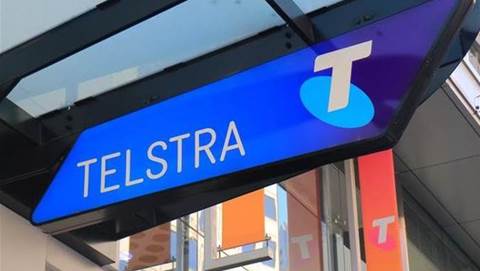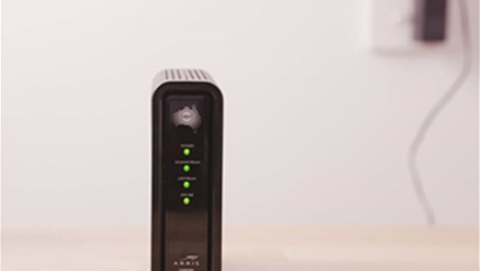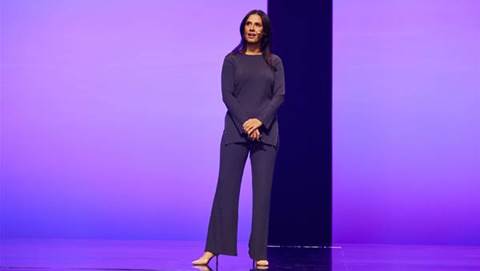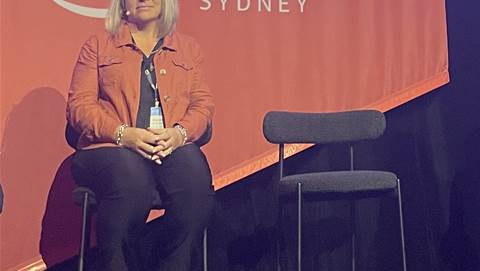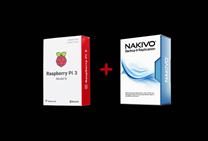Optus is the first major retailer to raise the price of its entry-level NBN services, a decision the rest of the industry is likely to have to confront over coming months.

The move by Optus, made a week ago, sees its most basic unbundled NBN service rise from $60 a month to $75-80 a month.
It confirms Optus as an adopter of NBN Co’s new permanent pricing construct, which sets the wholesale cost of a basic internet service at $45 a month.
For that $45, retailers can put internet users on a service capable of speeds up to 50Mbps. It comes with 2Mbps of bundled connectivity virtual circuit (CVC) capacity to help users see those speeds, particularly during the evening peak.
This is redefining what a basic service is on the NBN.
But it has also put retailers on edge over what to do with their existing basic NBN user bases, most of whom don’t pay enough each month to be upgrade candidates for the new basic standard of service.
What happens to this million-plus users is an open question.
How we got here
Up until now, retailers have been able to offer NBN services on a basic 12Mbps wholesale tier.
This tier was intentionally priced low enough at a wholesale level to allow RSPs to resell it for as little as $40 a month.
Similarly, under the old NBN pricing model, a 25Mbps service could retail for around $60 a month. For many years, $60 a month has been a sweet spot for Australian fixed-line internet pricing.
The problem is that neither leaves enough on the table for NBN Co to achieve any part of its economic business case.
Existing 12Mbps and 25Mbps services do not produce the average revenue per user (ARPU) needed to underpin NBN Co’s financial growth.
Rather, these services were priced to allow users to shift from ADSL to NBN connections without facing higher bills.
They also enabled retail service providers (RSPs) to maintain mark-ups on broadband services broadly in line with the ADSL era. The margins on NBN Co’s higher tier products are nowhere near as good.
While this has been good for RSPs and many Australian internet users, it has proven a major problem for NBN Co, whose entire economic model is predicated on customers continuing to pay higher and higher prices for their broadband.
As the project gets closer to its 2020 completion, NBN Co is closing in on a time when it must refinance an up to $20 billion government loan, and also likely present itself for sale: neither of which will be easy if its economics continue not to stack up.
The company’s new price construct, which came into effect this month, is NBN Co’s bid to improve the project’s economics.
It works by charging a higher basic wholesale price ($45) than the company presently earns from the average revenue per user (ARPU) across its entire user base (currently $44).
The new price construct also punishes internet providers that sell a lot of 12Mbps or 25Mbps services.
Existing 12Mbps users may not be able to afford to move up to newer plans.
Whether or not they can stay on existing plans is a decision for their internet provider.
Providers that choose to service legacy users as well as customers signed up to newer-priced plans will be financially punished by having to run twice as many interconnections to the NBN compared to a provider that builds plans only using the new price construct.
NBN Co consistently portrays this as a “choice” for RSPs - but it is one that threatens the future of affordable services over the NBN.
The effect of this “choice” is now being played out in the market.
Basic 12Mbps services are endangered
In the past few weeks, both Optus and Vodafone have stopped selling 12Mbps NBN services altogether.
This is a direct result of the new price construct, which is designed to make 12Mbps - and even 25Mbps - services less attractive to sell.
An Optus spokesperson told iTnews that its decision to stop offering 12Mbps NBN services was a “commercial” one but that it will “still support legacy orders”.
Optus had 166,457 users on the 12Mbps tier at last count.
A spokesperson for Vodafone Australia - which is a relatively new NBN reseller - also confirmed it had stopped using 12Mbps as its basic NBN speed.
“We offer our customers three plans starting from 25Mbps because we believe these plans give our customers the best of what NBN has to offer,” the spokesperson said.
“Vodafone customers are free to move between plans with no additional fees or penalties.
“This includes changing up from the [old] basic [12Mbps] plan to the faster speed NBN plans.”
The moves are likely to heap pressure on the dwindling number of RSPs that still sell 12Mbps services.
TPG - which has 363,382 such users - and Vocus - whose brands have a combined 166,000 12Mbps customers - are continuing to sell 12Mbps services. Exetel also still offers a 12Mbps plan.
But this could become increasingly untenable.
TPG has an easier answer to the problem than Vocus; it is likely to be able to offer cost-conscious NBN users an LTE-based service on its forthcoming mobile network instead. It is already touting capped speed plans that could prove attractive for home internet use.
Optus is in a similar position, with an increasing array of large quota mobile broadband products for home users that could be substitutable for users at this end of the NBN market.
How Optus will handle its legacy 12Mbps user base in the long term is unclear. The company’s spokesperson declined to provide further details of its strategy.
Spokespeople for TPG and Vocus also did not want to comment publicly - a sign of the tough decisions that they are now facing around the future of their NBN offerings.
Rewriting history
Having Optus and Vodafone pull the pin on selling 12Mbps plans will suit NBN Co.
Since August last year - and perhaps even earlier privately - the company has wanted to axe the 12Mbps tier, despite it representing one in every three NBN users less than a year ago.
Lately, NBN Co has ramped up its rhetoric against 12Mbps, all but confirming it wants to vacate the tier of broadband customers and use it as a home for voice-only services.
Outgoing CEO Bill Morrow last week said that “the 12Mbps product - we have all the historians tell us - was originally designed predominantly to be able to support voice grade services”.
NBN Co made similar assertions in a blog post at the end of last week.
“The current NBN12 product has always been intended as a primarily telephone service designed for those who have basic internet needs,” it said.
“Unfortunately, many households purchased this NBN access network plan via their internet provider assuming it included fast broadband.
“Some end users didn’t realise it did not provide them the speed or capacity needed to meet their needs, especially during peak usage times.”
The idea that the 12Mbps was never intended to be used for broadband services is largely unsupported by the body of documentation that NBN Co has published over the years.
Its 2012 annual report, for example, lists the project’s “objectives”, one of which is to:
“Charge its retail service provider customers a uniform national wholesale access price of $24 per month for the basic services designed to offer those RSPs broadband speeds of up to 12Mb downlink and up to 1Mb uplink across fibre, fixed wireless and satellite platforms, consistent with the government’s objective of providing uniform national wholesale prices.”
NBN Co is set to make sure the 12Mbps tier can’t be resurrected as a broadband service.
It is now consulting on a proposal to use the tier for a $22 a month voice service.
Data speeds on the tier would be rate-limited to 50Kbps “which is enough to cover a basic telephone service as well as basic email and web browsing”, NBN Co said.
CVC costs are also expected to be well above the levels of other plans, making 12Mbps an uneconomic destination to run broadband services in.
Last hope for existing 12Mbps users
RSPs wanting to keep their legacy 12Mbps base happy - and on the NBN fixed-line network, as opposed to LTE - are pegging their hopes on a change of heart from NBN Co.
Presently, 12Mbps users have indirectly benefited from NBN Co’s ‘Focus on 50’ campaign, under which retail service providers received a 50 percent connectivity virtual circuit capacity bonus for free.
The bonus was ostensibly for customers that switched to 50Mbps services, which NBN Co has made its new “basic” tier.
But due to the way the NBN works - where data between the NBN and RSP is exchanged over a single virtual interconnect - all of an RSP’s users benefited from the bonus capacity.
This is set to end in October, at which point RSPs will have to fork out for the extra capacity themselves in order to keep 12Mbps (and other services) performing as they have been for the first part of this year.
RSPs that are yet to announce how they plan to deal with their 12Mbps user bases are hoping NBN Co will change its mind on ‘Focus on 50’ and extend the CVC bonus indefinitely.
Doing so would offset some of the negative impact for users that can't afford a higher-grade service on the new price construct.
It would also limit the scope of an impending class war between users on the old and new price constructs.
It was hoped that the issue would be raised as part of a fresh pricing consultation kicked off by NBN Co at the end of last week, however that appears not to have occurred.
The door isn’t completely closed on the prospect, though it would mean NBN Co softening its stance on clearing the 12Mbps tier of broadband users.
How palatable that is may ultimately depend on how many 12Mbps users don’t have the financial means - or appetite - to pay more than they do now.
“As we have mentioned before publicly, we remain heavily focused on working with internet providers to migrate end users to the new bundle offers and will continue to listen to feedback from industry on their needs to ensure a smooth transition,” an NBN Co spokesperson said.
“We have no immediate plans to extend out the promotional offer past 31 October 2018.”








